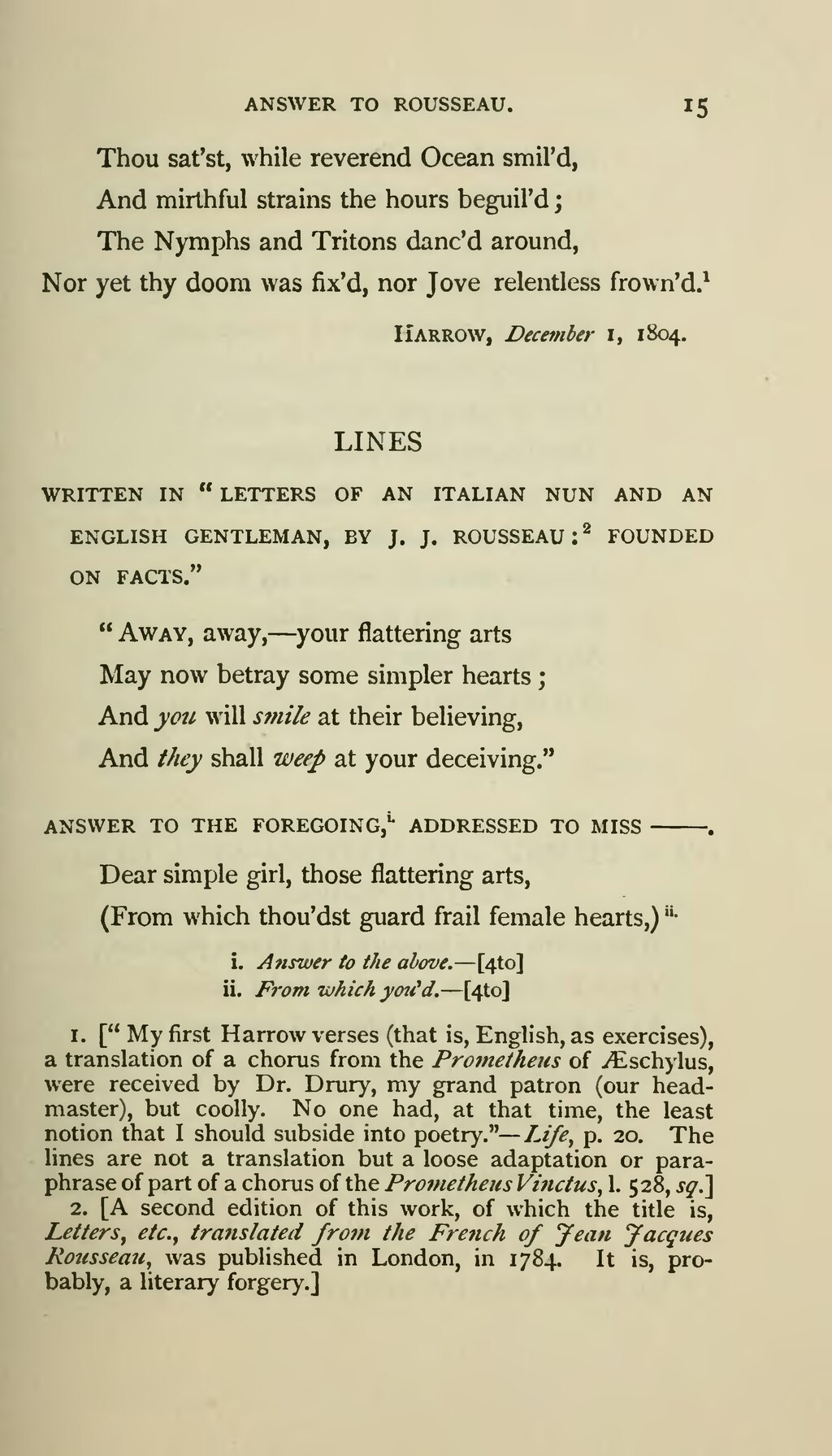This page has been validated.
ANSWER TO ROUSSEAU.
15
Thou sat'st, while reverend Ocean smil'd,
And mirthful strains the hours beguil'd;
The Nymphs and Tritons danc'd around,
Nor yet thy doom was fix'd, nor Jove relentless frown'd.[1]
Harrow, December 1, 1804.
LINES
WRITTEN IN "LETTERS OF AN ITALIAN NUN AND AN ENGLISH GENTLEMAN, BY J. J. ROUSSEAU:[2] FOUNDED ON FACTS."
"Away, away,—your flattering arts
May now betray some simpler hearts;
And you will smile at their believing,
And they shall weep at your deceiving."
ANSWER TO THE FOREGOING,[3] ADDRESSED TO MISS ——.
- ↑ ["My first Harrow verses (that is, English, as exercises), a translation of a chorus from the Promeiheus of Æschylus, were received by Dr. Drury, my grand patron (our headmaster), but coolly. No one had, at that time, the least notion that I should subside into poetry."—Life p. 20. The lines are not a translation but a loose adaptation or paraphrase of part of a chorus of the Promtheus Vinctus, l. 528, sq.]
- ↑ [A second edition of this work, of which the title is, Letters, etc., translated from the French of Jean Jacques Rousseau, was published in London, in 1784. It is, probably, a literary forgery.]
- ↑ Answer to the above.—[4to]
- ↑ From which you'd.—[4to]
